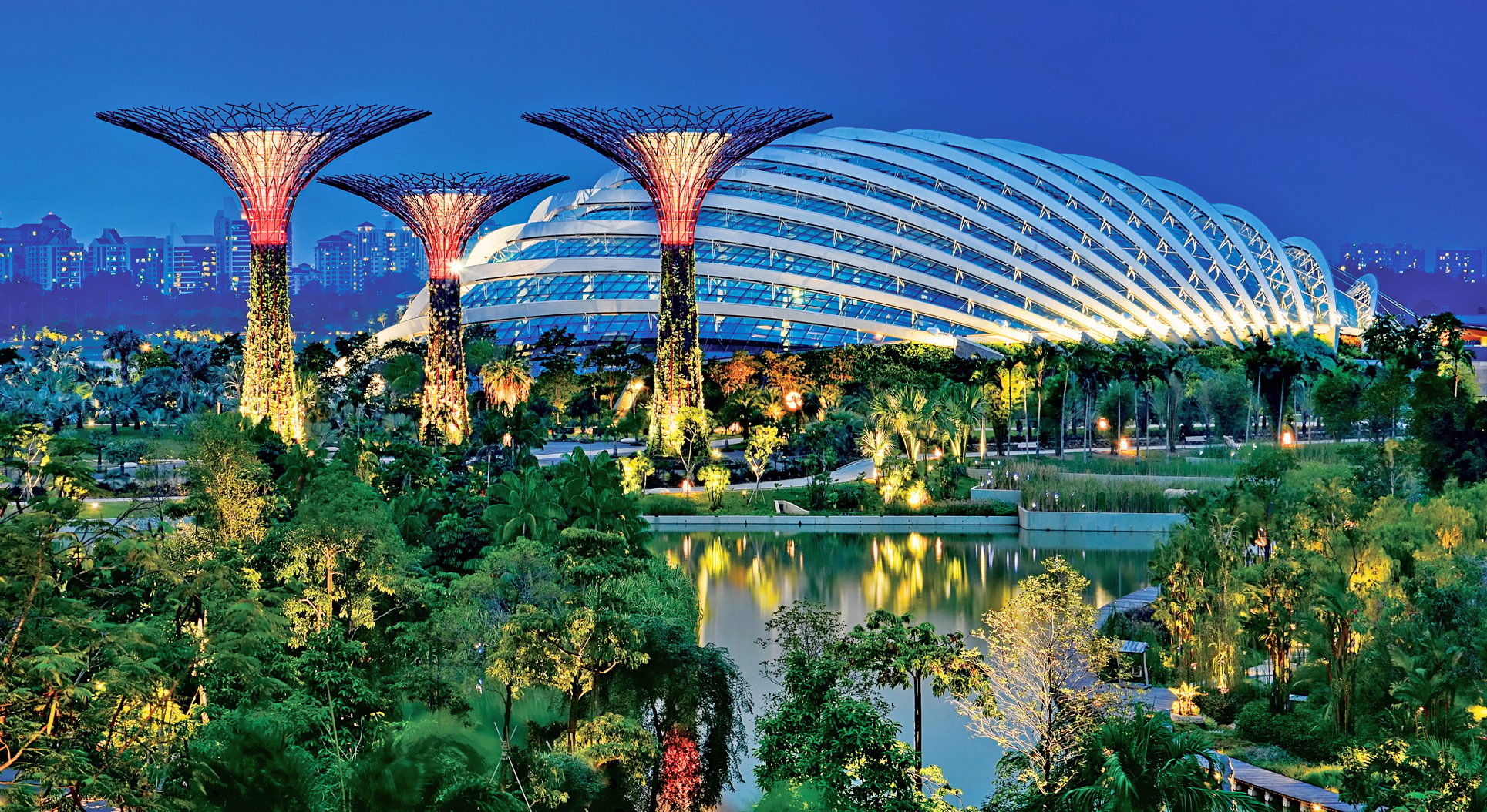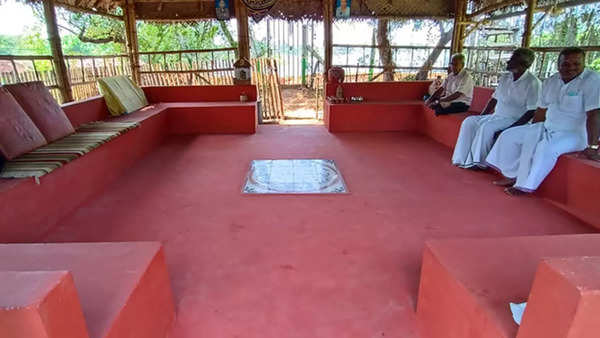Forty-four-year-old Sarjum has spent a big portion of his life counting on the waters alongside seaside Kanci for his livelihood, as his father – additionally a fisherman and salt farmer – had earlier than him.
Rising up, Sarjum typically accompanied his father to fish within the sea. In the summertime months, he would fetch buckets from Mundu Bay to farm salt. Now, he appears out to the shoreline dejected, recognizing a towering coal-fired smokestack from the small residence he shares along with his spouse and three younger kids.
For greater than ten years now, a handful of quiet coastal villages in West Java, Indonesia have had their lives upended by the operations of a coal-fired facility that has polluted and encroached on their farmland and fishing grounds.
Operated by PT Cirebon Electrical Energy, the Cirebon 1 coal energy mission is a 204-hectare facility that sits alongside Mundu Bay and overlooks the Java Sea within the port metropolis of Cirebon, some 220 kilometres from Jakarta.
The US$850-million facility has confronted scrutiny from native stakeholders since its building started in 2008, with allegations of corruption, harassment and human rights violations, on high of accusations of gross negligence which have led to widespread environmental destruction after its operations started in 2012.
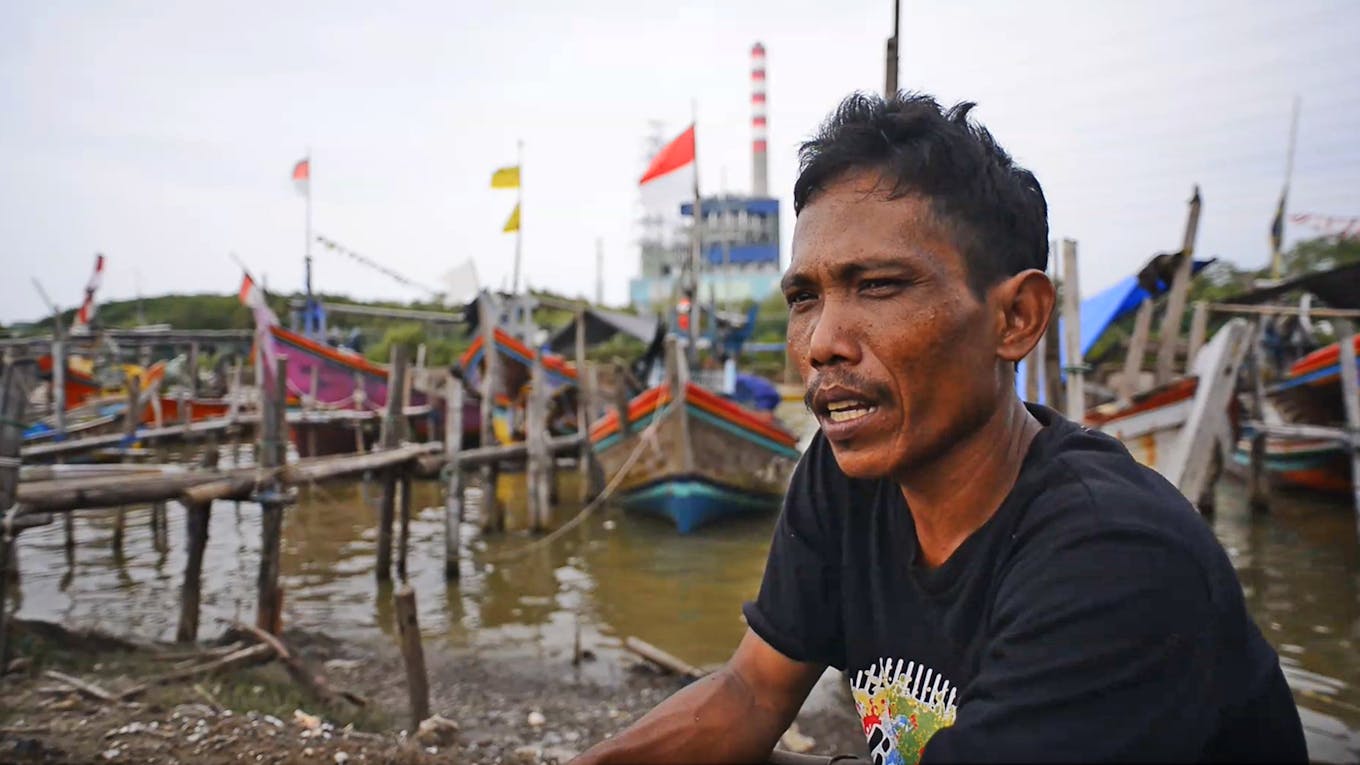
An area fisherman sits in entrance of their coastal neighborhood’s docked motorised boats with Cirebon 1 behind him. Picture: ResponsiBank Indonesia
WALHI, or Mates of the Earth Indonesia, has documented that about 3,000 farmers and fisherfolk within the village of Kanci and a few 5 neighbouring coastal cities have had their livelihoods disrupted by the facility station.
Amongst them are Sarjum and his neighborhood.
“Life has change into troublesome,” Sarjum instructed Eco-Enterprise in his native Bahasa Indonesia. “Up to now, I may depend on fishing and salt farming to supply for my kids. Now our household revenue has been greater than halved and the salt ponds we used to farm are gone to present strategy to the facility crops.”
Sarjum has taken to day by day wage work to proceed placing meals on his household’s plate, incomes simply between 50,000 to 90,000 rupiah day by day – or equal to US$6 to US$9 – for work as a labourer or welder. He shares that there are even days when there are not any odd jobs obtainable for him to earn a dwelling.
“
It’s grossly unfair that [policies like] the ETM incentivise massive corporations however exclude the neighborhood from the dialog. Compensation goes to the [conglomerates]. How about accountability to the individuals instantly affected by the operation of those coal crops?
Dwi Sawung Rukmono, power and concrete marketing campaign supervisor, WALHI
By means of class motion and protests, communities dwelling between the Cipaluh and Kanci rivers, the place the coal plant is positioned, have repeatedly raised their considerations concerning the devastating impacts of the mission on their livelihoods and well being.
“Each day, we’re topic to black mud from the facility plant,” associated Sarjum. “Most in our neighborhood now undergo from lung illnesses and respiratory issues, together with me. Our rivers and sea waters have change into murky and sizzling, the fish scarce. Even consuming shellfish we harvest from the bay may cause meals poisoning.”
In keeping with analysis by Harvard College and Greenpeace Southeast Asia, present coal crops in Indonesia trigger an estimated 7,100 untimely deaths yearly.
Cirebon 1 is operated by Cirebon Electrical Energy (CEP), a global consortium made up of Japan’s Marubeni Company, South Korea’s Korean Midland Energy Firm and Samtan Firm, together with the Indonesian energy firm PT Indika Vitality.
It’s funded by a number of worldwide monetary establishments, together with Japan’s Financial institution of Worldwide Cooperation, Sumitomo Mitsui Banking Company, Mizuho Monetary Group and MUFG Financial institution, in addition to the Export-Import Financial institution of Korea and ING Group.
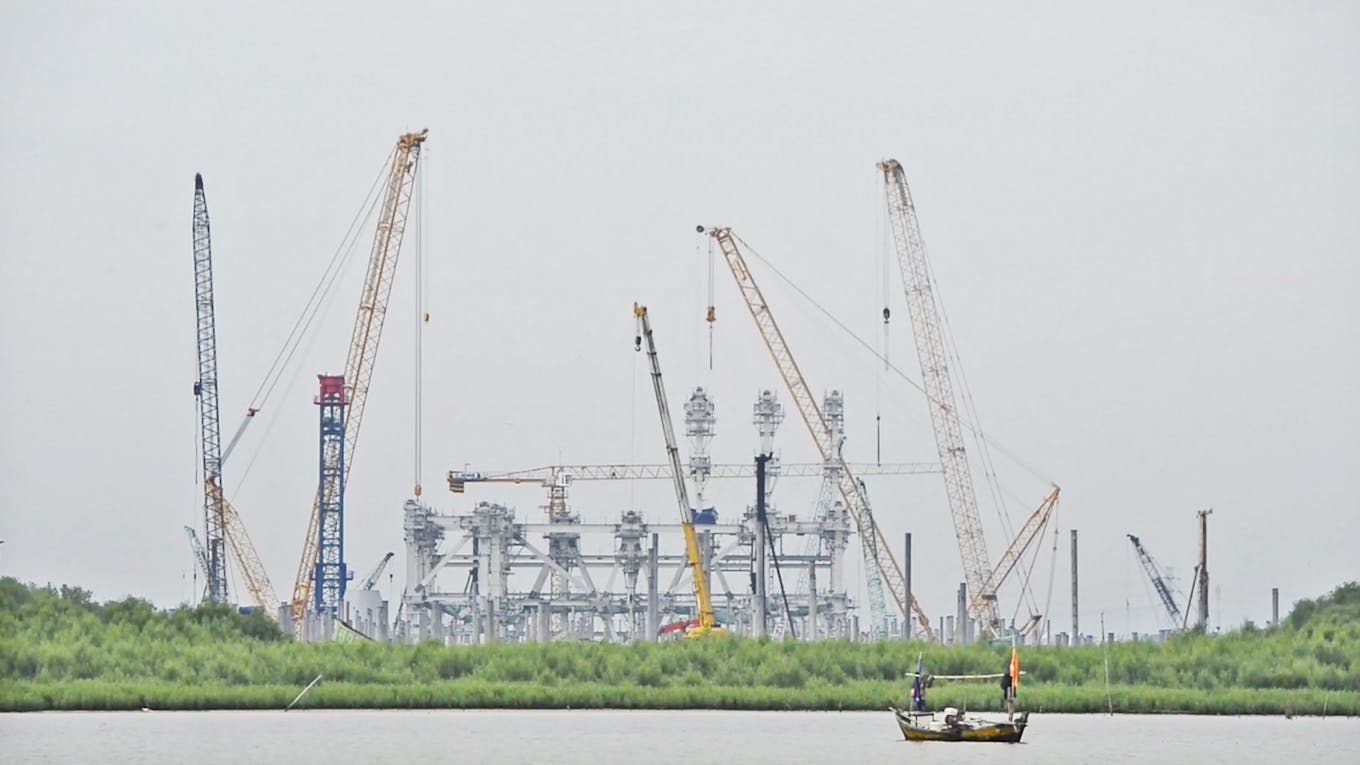
Development on Cirebon 2 dwarfs a fisherman’s boat alongside Mundu Bay. Picture: ResponsiBank Indonesia
“[Cirebon 1 investors] are partly answerable for the emission of poisonous substances into the surroundings, injury to farmers and fishermen, and deaths from air air pollution,” mentioned Ah Maftuchan, coordinator of ResponsiBank Indonesia, a civil society coalition that champions the function of economic establishments in sustainable growth. “Let ING Group [and other investors] take critically and counter the considerations of native Indonesians about corruption and human rights violations by new coal-fired energy stations in Indonesia.”
The story of Cirebon highlights how a simply power transition is a sophisticated course of that includes navigating the financial pursuits of highly effective companies whereas balancing the necessity for justice for affected native communities. It is usually a invaluable case examine that illustrates the real-world obstacles in Indonesia’s coal phase-out plan.
Nonetheless, some constructive developments look like on the horizon. In early November 2022, the operator of Cirebon 1 signed a cope with the Asian Improvement Financial institution (ADB) and Indonesian Funding Authority to probably decommission the ability some fifteen years forward of its operational lifespan. This ought to be seen as a welcome growth for the local people, however the actuality is extra complicated on the bottom.
For one, there’s a new coal plant known as Cirebon 2 within the works—developed by PT Cirebon Energi Prasarana, a subsidiary of the identical dad or mum firm as Cirebon 1—which can quickly be operational.
There’s additionally a dearth of accountability and reparations for the devastated fishing and farming communities from the operators of the ability. This has precipitated teams like ResponsiBank Indonesia and WALHI to name for CEP and its shareholders to be held accountable for the injury Cirebon 1 has precipitated the encircling surroundings and native communities.
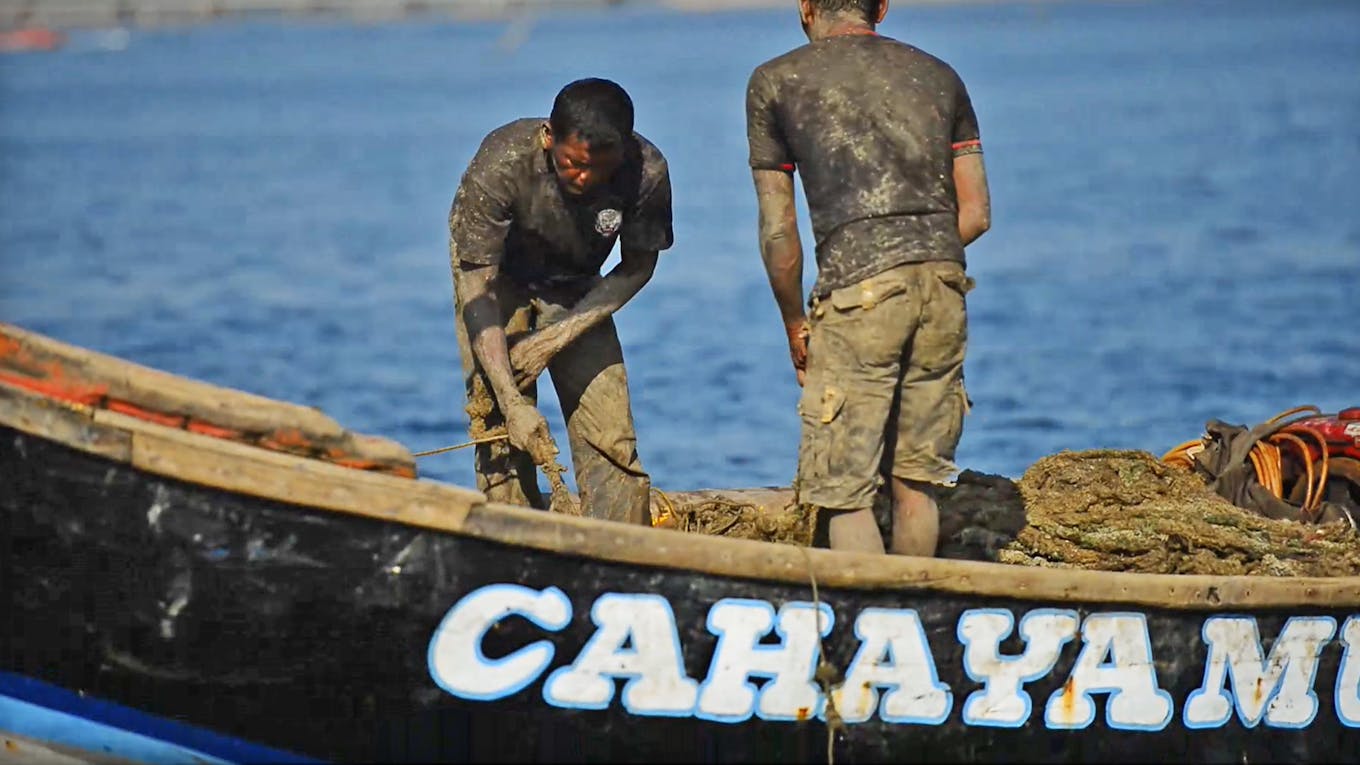
Kanci fishermen return muddied after harvesting shellfish as a consequence of heavy siltation alongside Mundu Bay. Picture: ResponsiBank Indonesia
‘Flawed’ power transition
The G20 summit in Bali in November 2022 concluded with a seemingly twofold win for Indonesia’s transition to scrub power: the disclosing of the pioneer Simply Vitality Transition Partnership (JETP) settlement in Southeast Asia, coupled with the announcement of the Asian Improvement Financial institution (ADB)’s Vitality Transition Mechanism (ETM) assist for the early retirement of personal coal crops within the nation.
The JETP settlement is about to allot some US$20 billion to catalyse Indonesia’s objective of doubling its renewable power sources within the subsequent three to 5 years to 34 per cent of its inventory.
In the meantime, the landmark ETM deal is ADB’s market-oriented resolution to speed up the method of taking coal energy off of nationwide power grids in particular Southeast, South and Central Asian nations and changing it with different sources of energy. The preliminary settlement in Indonesia goals to terminate the operations of Cirebon 1 by 2037 on the newest, by expending US$250 to US$300 million in loans to refinance the ability.
Nonetheless, with some civil societies, communities, and staff’ organisations flagging gaps in these “coal-to-clean” schemes, it stays to be seen if the brand new insurance policies will produce any significant change for communities already impacted by widespread detrimental penalties wrought by coal crops in Indonesia, similar to air air pollution from fly ash and heavy metals contaminating our bodies of water. Fly ash is a wonderful powder that could be a byproduct of burning pulverized coal in electrical technology energy crops.
A report launched on January 26, 2023, titled, The Asian Improvement Financial institution’s Vitality Transition Mechanism: Rising Social, Environmental and Rights-Based mostly Concerns, collectively printed by Truthful Finance Asia (FFA) and NGO Discussion board on ADB (the Discussion board), highlights essential questions and considerations about ADB’s ETM.
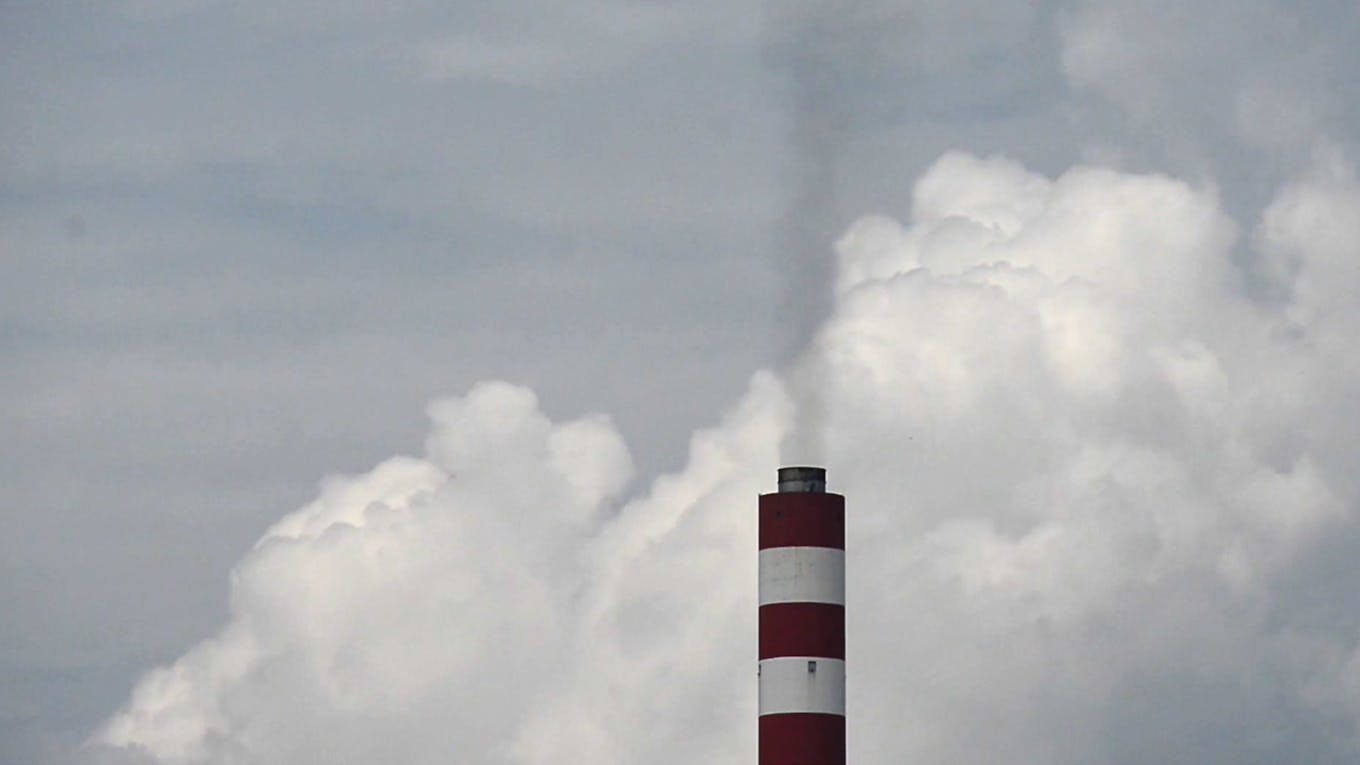
Smoke billows from the smokestack of Cirebon 1. The ability requires at the very least 2.3 million tonnes of coal provide a 12 months to function. Picture: ResponsiBank Indonesia
FFA and the Discussion board’s report underscores {that a} real and simply power transition can solely be achieved if operators and buyers “meaningfully acknowledge [the] social and environmental injury” attributable to amenities like Cirebon 1 whereas offering the suitable compensation to communities the place coal energy initiatives have been financed previously and can now must retire.
Vitality Transition Mechanism
Manila-based Asian Improvement Financial institution’s (ADB) Vitality Transition Mechanism (ETM) settlement was launched with Indonesia, whereas comparable insurance policies are within the pipeline for Kazakhstan, Pakistan, the Philippines, and Vietnam.
With the ETM partnership, ADB hopes to catalyse Indonesia’s phase-out of coal initiatives by offering between US$250 to US$300 million in non-public sector loans to refinance the 660-megawatt Cirebon 1 energy plant in West Java, on the situation that the ability can be decommissioned 10 to fifteen years earlier than the tip of their 40 to 50-year lifespan.
The report underlines that the ETM doesn’t explicitly guarantee that the ADB’s environmental and social safeguard requirements can be put in place for the welfare of the neighborhood forward of the early retirement of Cirebon 1.
In relation to the proposed phase-out of the coal-fired facility, the report poses the query: “Will the encircling communities in addition to affected staff have the chance to file grievances below the ADB’s Accountability Mechanism? It stays to be seen,” FFA and the Discussion board concluded.
The report additional recommends that coal transition initiatives just like the ETM ought to assist a swift phase-out of coal by 2040 on the newest, whereas making certain that fossil fuel-dependent infrastructure and related amenities keep out of the power funding pipeline within the close to future.
“Civil society teams within the area have gotten more and more involved that the ETM is flawed by design,” mentioned Rayyan Hassan, government director, NGO Discussion board on ADB. “[It] seemingly [leaves] communities and staff on the very websites the place the ETM can be proposed to be piloted, at midnight…whereas turning a blind eye to the calls for by broad social actions throughout the area for publicly accountable processes to part out coal and different fossil gas industries directly.”
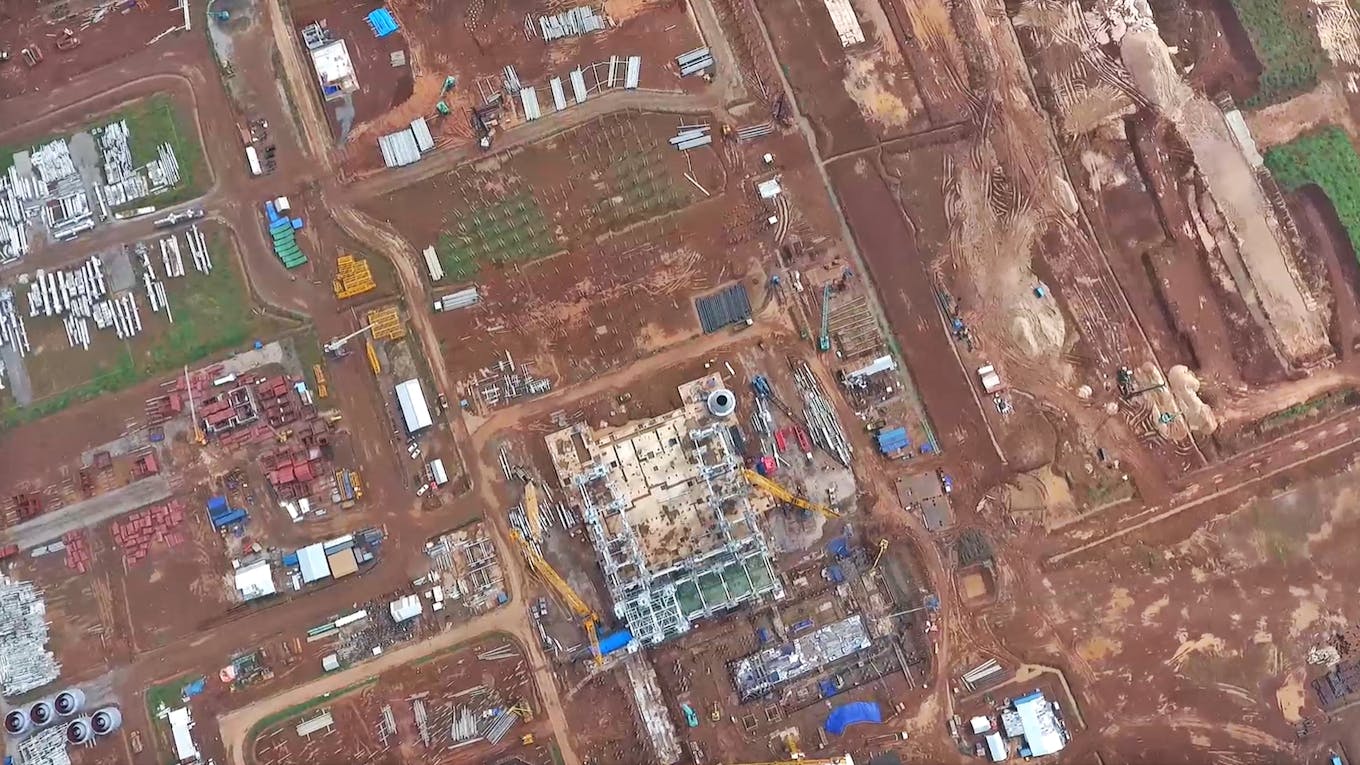
Salt farms and agricultural land give method for the development of Cirebon 2. Picture: ResponsiBank Indonesia
Indonesia’s wager on ‘soiled’ coal
A 2021 examine by Universitas Pendidikan Indonesia concluded that Cirebon 1 has precipitated vital “detrimental results” on the water high quality alongside Mundu Bay, an inlet connecting Cirebon’s rivers to the Java Sea.
The examine discovered that coal particles and combustion mud have leached into the physique of water by means of runoffs, affecting the viability of those waters to assist marine life, and that the encircling water may very well be contaminated with heavy metals that may cause well being issues within the coastal communities within the close to future.
Anecdotal info gathered by WALHI from an area well being centre claims that there was a serious rise in extreme power respiratory sicknesses locally as a consequence of fly ash from Cirebon 1. Except for the lack of coastal fisheries, the plant has severely broken Kanci’s conventional salt farms and rice fields as a consequence of air and thermal air pollution, in addition to runoffs tainting the soil.
Amidst ongoing opposition to Cirebon 1 from civil society teams and communities, in 2017, building started on Cirebon 2, a US$2-billion growth mission adjoining to the primary facility. The brand new plant, set so as to add 1,000 MW in energy technology to the facility station, was anticipated to be operational by 2022, however confronted delays as a result of Covid-19 pandemic.
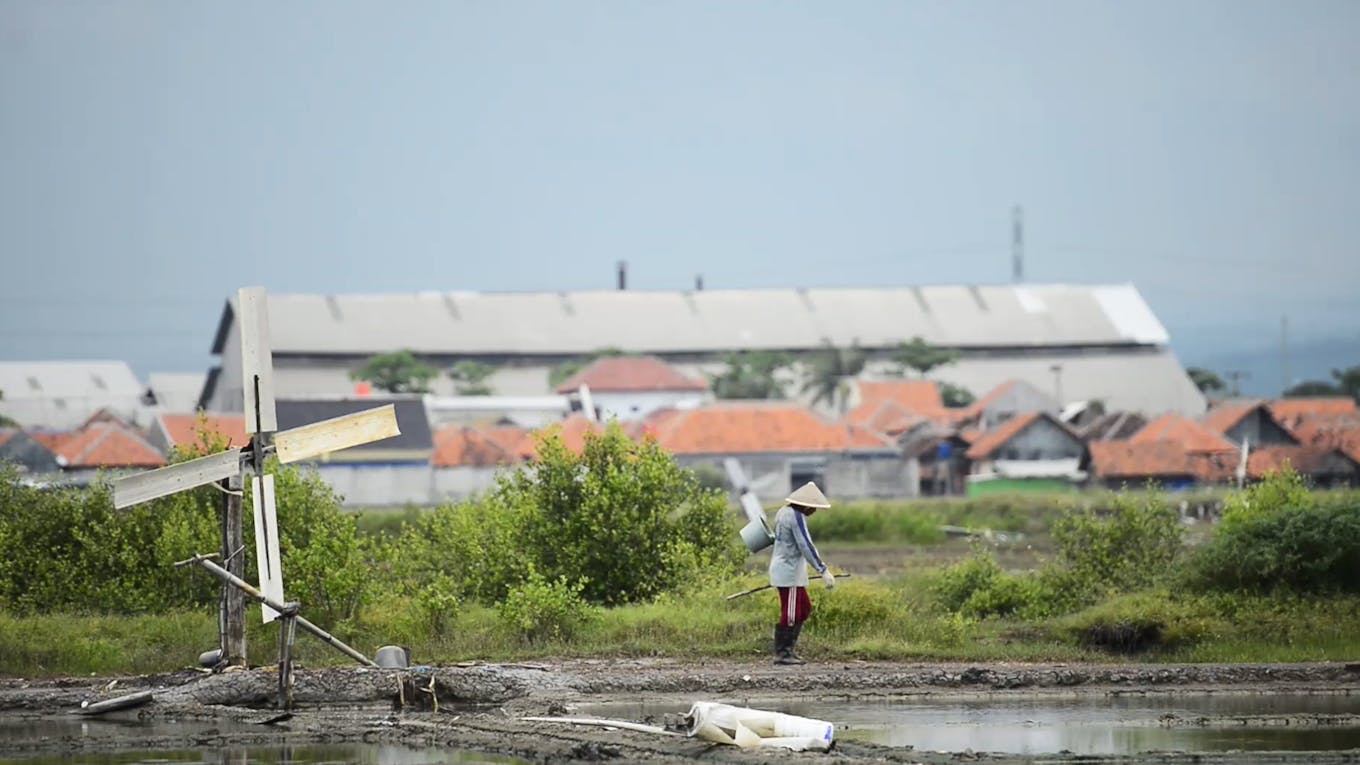
An area farmer tends to their land close to Cirebon 1. Picture: ResponsiBank Indonesia
Regardless of the US$20-billion JETP deal, Indonesia nonetheless has 19 GW of latest coal capability below building and seven GW in planning phases, in line with knowledge compiled by World Vitality Monitor. Amongst these is the coal-fired Cirebon 2 growth in West Java.
Simply Vitality Transition Partnership
After South Africa, Indonesia is just the second on the planet to launch its personal Simply Vitality Transition Partnership (JETP) in cooperation with the Worldwide Companions Group (IPG), co-led by Japan and the USA of America, in addition to by Canada, France, Germany, the UK and the European Union.
The JETP will mobilise some US$20 billion within the subsequent three to 5 years to assist and speed up Indonesia’s pivot to extra renewable power sources. The nations celebration to IPG are set to contribute US$10 billion to the JETP, whereas the opposite US$10 billion can be facilitated by the Glasgow Monetary Alliance for Web Zero (GFANZ) working group.
Indonesia was one of many high 10 world polluters in 2019, producing virtually 615 million tons of CO2, in line with the World Meteorological Organisation, with 60 per cent of its power assets depending on coal. Its greenhouse gases have largely been attributed to the archipelagic nation’s heavy reliance on fossil fuels, in addition to to fires and deforestation linked to the nation’s oil palm business – which has cleared massive swathes of peatlands and woodlands to make method for plantations.
Main as much as COP27, Indonesia made a dedication to scale back its carbon emissions by as much as 43 per cent by 2030 with cooperation from different nations. However the nation’s extended involvement within the coal enterprise may make the change to sustainable power harder. Indonesia is the world’s largest exporter of thermal coal, incomes at the very least US$3 billion a month from the extractive business by delivering coal to China, India, Japan and South Korea, amongst others.
The Worldwide Renewable Vitality Company estimates that to ensure that Indonesia to boost its inventory on renewable power from simply 14 per cent, it must fund some US$332 billion in power transition applied sciences and US$80 billion in grid infrastructure growth by 2030.
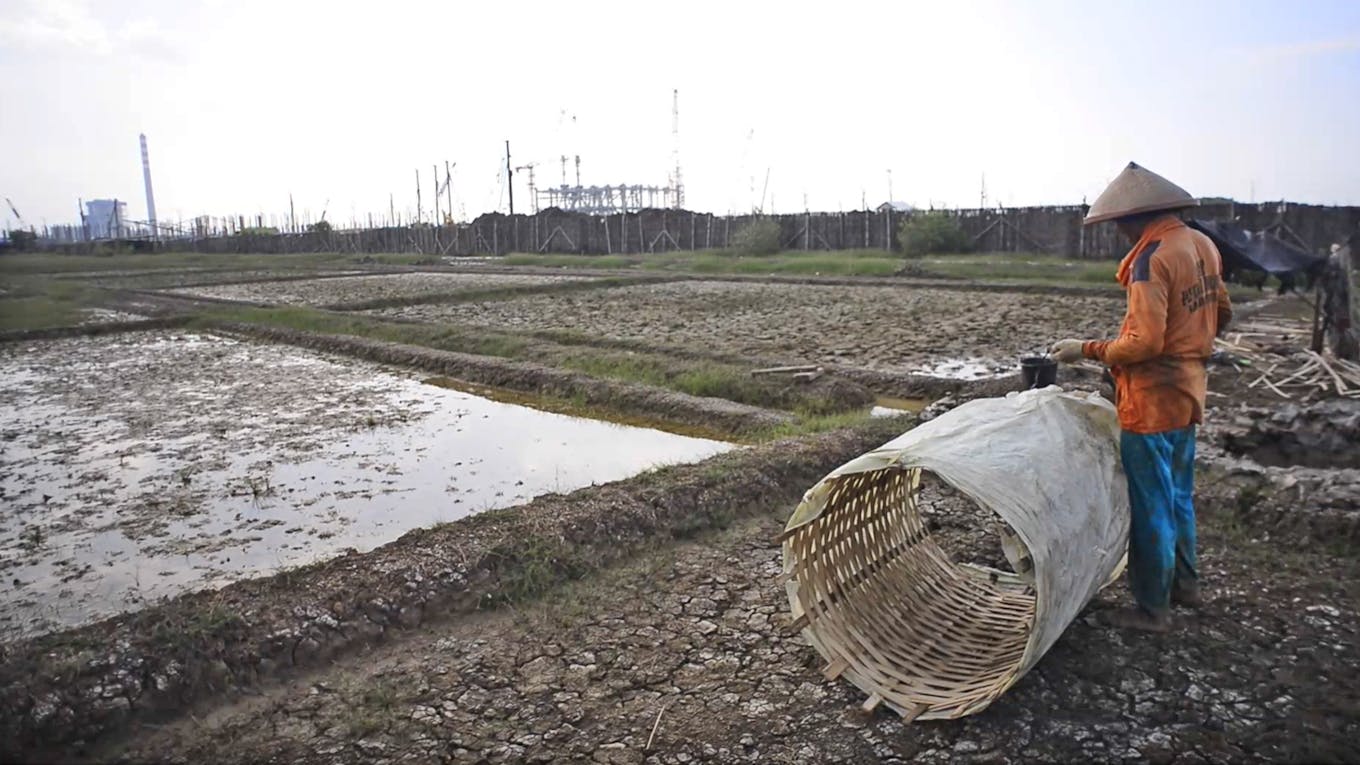
The US$850-million 660 MW coal-fired facility has obtained criticism from civil societies, communities, and staff’ organizations since its building started in 2008, the mission hounded by allegations of corruption, harassment, and human rights violations on high of accusations of gross negligence which have led to widescale environmental destruction. Picture: ResponsiBank Indonesia
Asia’s coal downside
The Asia Pacific area nonetheless accounts for at the very least 94 per cent of the world’s proposed coal mission expansions and new crops within the subsequent few years and holds some three-quarters of the world’s present world coal-fired capability.
In keeping with a 2022 report by FFA, main financial powerhouses in Asia, together with China, India, and Japan stay closely reliant on coal, oil, and fossil gasoline to satisfy their major power calls for, with the Central Asian area’s collective dependence on fossil gas reaching as excessive as 97 per cent.
FFA is a community of over 90 Asian allied civil society organisations dedicated to making sure monetary establishments’ funding choices respect the social and environmental well-being of native communities.
The identical examine highlighted the shortfall of economic establishments investing in renewable power, with solely 14 per cent of power funding for the previous six years being allotted for clear power. Of all of the excellent power investments by Asian buyers as of September 2022, solely 21 per cent supported renewable power.
In an announcement, WALHI welcomed the potential for the early decommissioning of Cirebon 1 in mild of the bulletins made throughout the G20 summit associated to the bulletins by the ADB, the Indonesian Authorities and Cirebon Electrical Energy to contemplate piloting the ETM.
Nonetheless, the organisation cautioned that the ability shouldn’t be “repurposed” into adopting an alternate energy supply, similar to co-firing with biomass, ammonia or hydrogen, which can be equally as detrimental to the encircling communities.
“Though the settlement seems to plan for an early closure of 10 to fifteen years in Cirebon 1, it’s important that the early closure of Cirebon 1 be carried out as quickly as potential, contemplating the air air pollution and affect on livelihoods that the local people has suffered up to now,” the advocacy group mentioned in an announcement, including that the graduation of operation in Cirebon 2 also needs to be halted.
Maftuchan of ResponsiBank Indonesia famous that each new coal-fired energy station in Indonesia results in a median of 600 additional deaths per 12 months. It’s notable that the ETM doesn’t require nations to commit to a whole coal phase-out by 2040.
Dwi Sawung Rukmono, WALHI power and concrete marketing campaign supervisor, identified that gaps within the ETM enable operators and buyers in coal initiatives like Cirebon 1 to keep away from and even escape legal responsibility.
“It’s grossly unfair that [policies like] the ETM incentivise massive corporations however exclude the neighborhood from the dialog,” Rukmono instructed Eco-Enterprise. “Compensation goes to the [conglomerates]. How about accountability to the individuals instantly affected by the operation of those coal crops: fishermen, farmers, salt farmers, who misplaced their livelihoods as a consequence of Cirebon 1?”
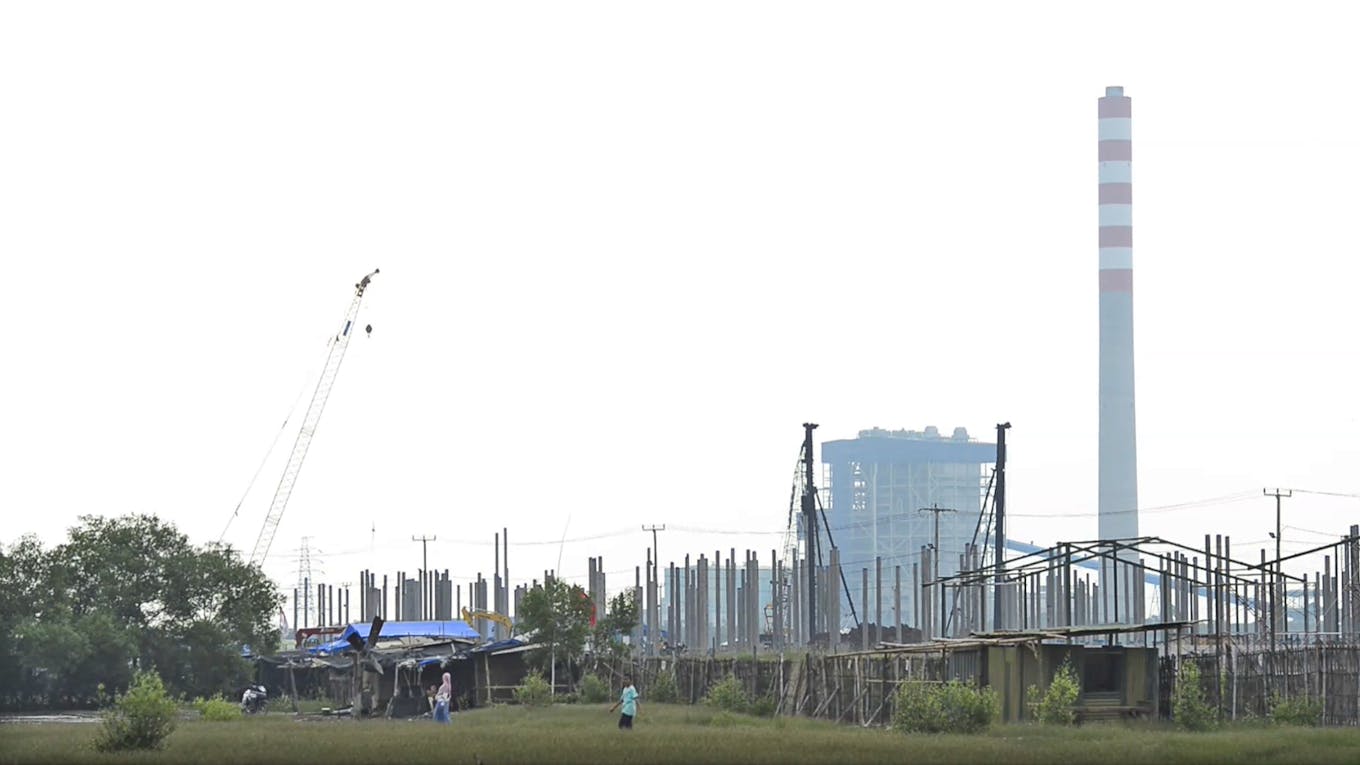
WALHI, or the Mates of the Earth Indonesia, has documented that about 3,000 farmers and fisherfolk within the village of Kanci and a few 5 neighbouring coastal cities have had their livelihoods disrupted by the facility station. Picture: ResponsiBank Indonesia
These sentiments are echoed by Hassan of the Discussion board: “After a long time of bankrolling coal energy initiatives within the area, the ADB dedicated to cease financing new coal energy initiatives in 2021.”
But, the ADB constantly fails to meaningfully deal with the calls for for justice and accountability raised by communities whose well being and livelihoods have been ravaged by the ADB’s investments in coal-related infrastructure, together with in Mongolia, Pakistan and the Philippines.
ADB plans to pilot comparable “coal-to-clean” ETM in Pakistan, the Philippines, and later in Kazakhstan and Vietnam.
To maintain in keeping with the Paris Settlement, the United Nations Financial and Social Fee for Asia and the Pacific has urged that phasing out coal by 2040 is “the only most vital step” that governments must pledge. Given the urgency of shutting out coal, ADB’s ETM could also be inadequate as a “coal-to-clean” initiative.
“A simply power transition isn’t so simple as shifting from fossil fuels to much less carbon-intensive sources of power,” mentioned Bernadette Victorio, program lead, Truthful Finance Asia.
“The ‘simply’ ingredient should be mirrored within the high quality and tempo at which the transition occurs. Are the rights of communities, staff, and indigenous peoples revered and safeguarded? Are there broad, inclusive, democratic, and clear consultative processes taking place between key stakeholders? Are we making certain that this complete course of isn’t lopsidedly benefitting fossil gas corporations and their buyers?”

